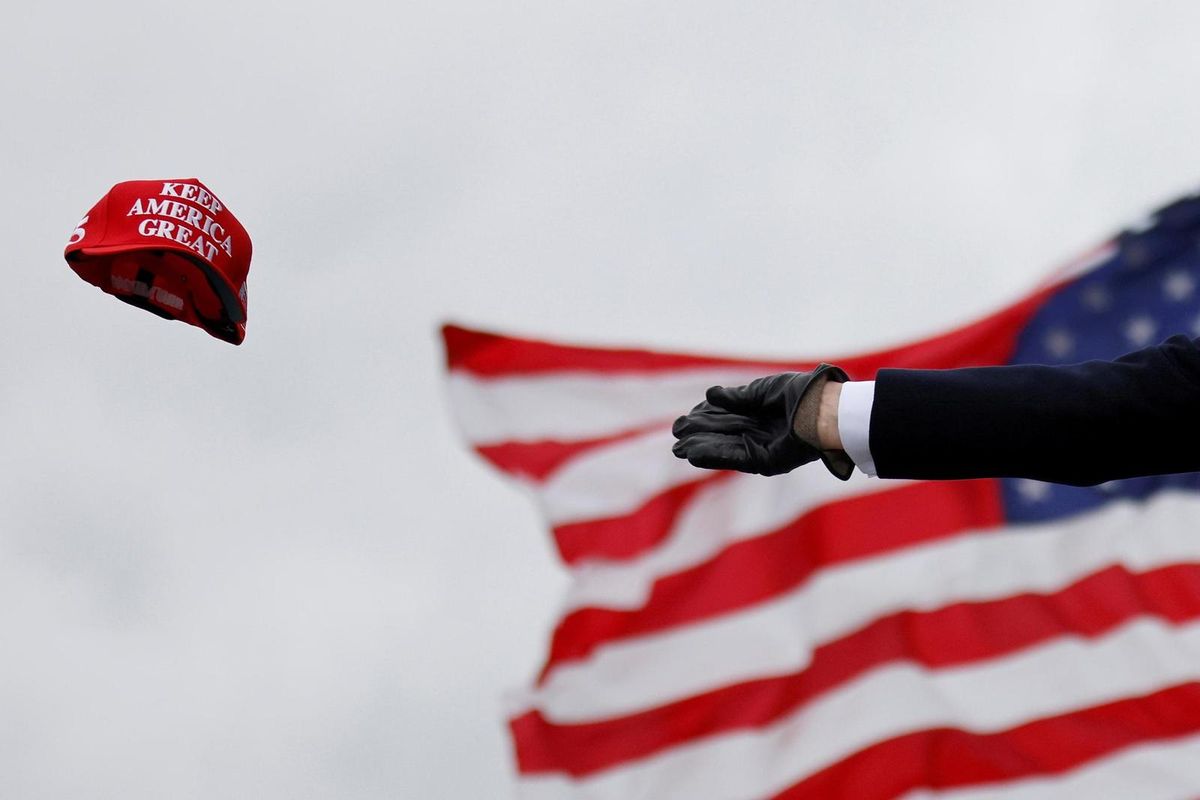What will happen if Trump refuses to leave?

A few minutes every morning is all you need.
Stay up to date on the world's Headlines and Human Stories. It's fun, it's factual, it's fluff-free.
President Donald Trump is likely to fight the transition all the way up to January 20, when President-elect Joe Biden is sworn in. But what happens if Trump decides not to leave the White House when his term ends?
Despite President Donald Trump’s refusal to concede the election, President-elect Joe Biden has begun organizing his team. However, if President Trump refuses to leave the White House in January, does the United States have laws in place to oust him?
Transition begins, despite no concession
Now that states have begun ratifying the election, the General Services Administration (GSA) has ascertained Biden to be the winner of the 2020 presidential election, allowing the Biden team access to federal resources and access to agencies.
Nevertheless, President Trump continues to deny the election results, tweeting “What does GSA being allowed to preliminarily work with the Dems have to do with continuing to pursue our various cases on what will go down as the most corrupt election in American political history? We are moving full speed ahead. Will never concede to fake ballots & ‘Dominion’.”
However, despite the continued accusations from President Trump that the election was rigged, Biden has moved forward with nominating and filling several positions in his future cabinet and organizing a COVID-19 response team. Biden and his campaign team have stressed the importance of a peaceful transition, especially in regards to the coronavirus response.
What happens if Trump refuses to concede?
Though Biden has spent the last few weeks putting together his staff, it’s still up in the air whether Trump will ever actually concede. Recent reports indicate that Trump may be coming to terms with his loss, with the president on November 26 replying to questions of whether he’d leave the White House following Biden’s inauguration by saying “Certainly I will. But you know that."
However, If Twitter is anything to go by, Trump is likely to continue fighting the transition all the way up to January 20, when Biden is sworn in as president.
The US Constitution states that a president’s term “shall end at noon on the 20th day of January … and the terms of their successors shall then begin.” This constitutional law has been abided by every president since the founding of the country. This law also means that on January 20, 2021, any constitutional authority that the president has officially ends and the new president takes over. After noon on January 20, Trump would no longer control the Secret Service, the armed forces as commander in chief, or any other federal agents.
In June, Biden addressed one possibility of a transition of power with Trevor Noah, the host of “The Daily Show,” stating that his greatest concern was that Trump would try to steal the election. When asked if he believes that the military would escort Trump out of the White House, Biden responded confidently, “I promise, I am absolutely convinced they will escort him from the White House with great dispatch.”
The Biden team has worked to put a transition team in place, despite pushback from the current president. Though Biden and his team have expressed frustration about the lack of cooperation they’ve received from Trump in the past few weeks, Biden has publicly projected an image of calm, recently stating that “My judgment is that we’ll get further along by actually working with our Republican colleagues now.”
It’s unlikely that the founding fathers anticipated a problem like Trump’s 2020 election behavior and historians are perplexed at what could happen next. Despite the founders’ efforts to prevent one individual from wielding too much power, they never put systems in place to legally oust a president who refuses to leave.
In The Washington Post, Jeffrey A. Engel, founding director of the Center for Presidential History, explained the founding fathers’ logic behind this decision.
“They couldn’t fathom two things: a person who had become president who was so utterly lacking in classical virtue that they would deign or dare to put their own interests above the unity of the country. And the second thing is, I think they couldn’t fathom how any president who would so vividly display disdain for the unity of the country, and mock and undermine the legitimacy of American democracy, why that person [wouldn’t have] already been impeached and removed from office.”
Biden expressed frustration in a recent interview with NBC Nightly News, explaining that while the White House is cooperating fully with his transition team, President Trump has refused to speak with him personally.
Most major Republican figures and others close to President Trump believe that he will leave in January, but that he will do so without conceding the election. The Washington Post reports that a close Trump ally has alleviated Democrats’ fears by saying that Trump will respect the election results, calling the idea of a refusal to leave “a liberal fever dream.”
Have a tip or story? Get in touch with our reporters at tips@themilsource.com




Comments ()